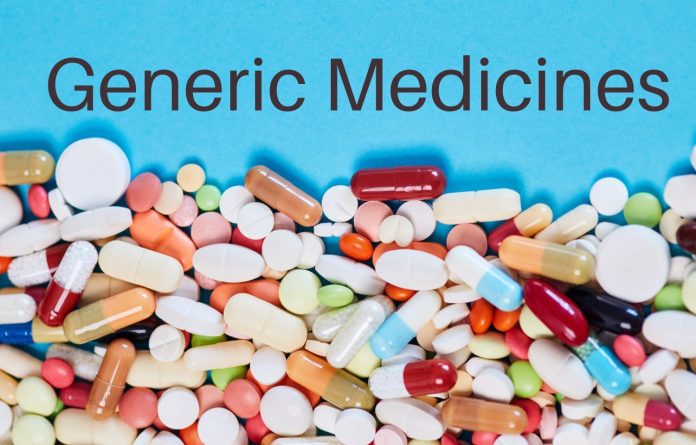The Indian pharmaceutical industry, often regarded as the “pharmacy of the world,” plays a crucial role in global healthcare, particularly in the United States. India supplies nearly 47% of all generic medicines consumed in the US, making it an indispensable part of the American healthcare system. However, recent policy changes proposed by former US President Donald Trump have raised concerns among Indian pharmaceutical manufacturers. Trump’s proposed 25% tariff on pharmaceutical imports could significantly impact India’s dominant position in the global drug market.
In This Article:
Understanding Trump’s Proposed 25% Tariff
In a bid to boost domestic pharmaceutical manufacturing, Donald Trump has suggested imposing a 25% tariff on pharmaceutical imports, including generic medicines from India. The move is part of his broader strategy to reduce dependency on foreign supply chains, particularly from countries like India and China. While the policy aims to protect the US pharmaceutical sector, it poses a severe challenge to Indian generic drug manufacturers, who supply low-cost, life-saving medicines to the US.
India’s Pharma Industry: A Backbone of US Healthcare
- India is a global leader in generic medicine exports, accounting for nearly 20% of global generic drug exports.
- The US imports nearly 47% of its generic medicines from Indian companies such as Sun Pharma, Dr. Reddy’s Laboratories, and Cipla.
- Indian pharmaceutical firms have established themselves as reliable, cost-effective producers of high-quality medicines, making healthcare more affordable for millions of Americans.
IPA’s Response to the Tariff Proposal
The Indian Pharmaceutical Alliance (IPA), which represents major Indian drug manufacturers, has expressed serious concerns over Trump’s tariff proposal. IPA argues that:
- Increased costs due to tariffs will disrupt the supply of essential medicines to the US market.
- The tariffs will drive up healthcare costs for American consumers and put pressure on insurance providers.
- Indian drug manufacturers have invested heavily in FDA-approved facilities and maintain high safety and quality standards.
- The US and India should engage in bilateral discussions to find a mutually beneficial solution rather than imposing trade restrictions.
Potential Impact of the Tariff on the US Healthcare System
The proposed tariff could lead to several negative consequences, including:
- Higher drug prices for American consumers, especially for life-saving drugs.
- Disruptions in supply chains, leading to possible shortages of essential medicines.
- Increased pressure on American generic drug manufacturers, who may struggle to meet demand.
- Longer approval timelines for alternative suppliers, creating a bottleneck in the market.
India’s Strategic Approach to Counter Tariff Threats
The Indian government and leading pharmaceutical companies are actively exploring strategic responses to counteract the impact of Trump’s tariff proposal:
- Bilateral Trade Discussions: The Indian government is in talks with the Biden administration to negotiate tariff exemptions for key pharmaceutical products.
- Diversification of Export Markets: Indian pharma companies are expanding into European, Latin American, and African markets to reduce dependency on the US.
- Investing in US-Based Manufacturing: Companies like Aurobindo Pharma and Lupin are setting up manufacturing facilities in the United States to bypass import tariffs.
- Leveraging WTO Rules: India is considering raising the issue at the World Trade Organization (WTO), citing unfair trade practices.
Expert Opinions on the Issue
Several industry experts and policymakers have weighed in on the potential implications of the tariff hike:
- Pharmaceutical Export Promotion Council of India (Pharmexcil): “The proposed tariffs are a setback to the longstanding trade relations between India and the US. We urge policymakers to find a balanced approach.”
- US Chamber of Commerce: “Higher tariffs on generic medicines could increase the financial burden on millions of American patients.”
- Health Policy Analyst, Dr. Susan Reynolds: “India’s role in the US healthcare system cannot be ignored. Tariffs will do more harm than good.”
Future Outlook: What Lies Ahead?
With the 2024 US Presidential elections approaching, trade policies remain a hot topic. If Trump’s 25% tariff proposal is implemented, it could reshape the global pharmaceutical landscape. However, the final decision depends on ongoing trade negotiations between India and the US. The hope remains that both nations will prioritize healthcare accessibility over trade restrictions.
Moving Ahead: The Need for a Balanced Approach
While the US aims to strengthen domestic pharmaceutical production, imposing high tariffs on Indian drug imports could have unintended consequences. The Indian pharmaceutical industry plays a pivotal role in making affordable medicines available worldwide. A collaborative approach through bilateral trade negotiations is essential to ensure that patients on both sides do not suffer due to policy shifts.
By- Nikita




